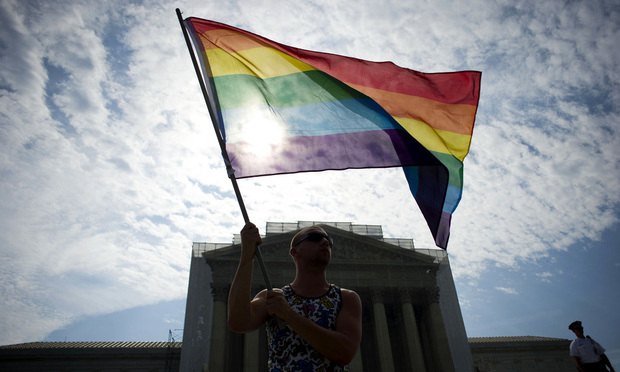 For many years the consensusamong courts was that sexual orientation was not protected, and theSupreme Court has declined to rule on the issue. (Photo: DavidHandschuh/ALM)
For many years the consensusamong courts was that sexual orientation was not protected, and theSupreme Court has declined to rule on the issue. (Photo: DavidHandschuh/ALM)
As a practitioner in South Florida, I often defend businesses inthe health care industry against employees' claims of discrimination, including claims ofdiscrimination based upon sexual orientation. Following two recentdecisions from the U.S. Court of Appeals for the EleventhCircuit involving Title VII of the Civil Rights Act of 1964,employers in the health care industry and elsewhere in Florida,Georgia and Alabama (states covered by the Eleventh Circuit) canexpect to see fewer lawsuits asserting discrimination on the basisof sexual orientation, right? Not necessarily. Employerswould be well-advised to take, or continue to take, steps toinsulate themselves from such claims.
|Related: A tipping point for LGBT policies in theworkplace
|Title VII prohibits discrimination “because of sex,” among otherprotected traits. However, Title VII does not, by its terms,explicitly identify sexual orientation as a protected class. Formany years the consensus among courts was that sexual orientationwas not protected, and the Supreme Court has declined to rule onthe issue.
|In 1979, the U.S. Court of Appeals for the Fifth Circuit, inBlum v. Gulf Oil, held that that discrimination on thebasis of sexual orientation is not prohibited by TitleVII. That decision is binding precedent in the EleventhCircuit. More recently, in March 2017, the Eleventh Circuit, inEvans v. Georgia Regional Hospital, reiteratedits former holding in Blum that sexual orientation isseparate and distinct from sex and is therefore not covered byTitle VII. The court again affirmed this conclusion in May 2018 inBostock v. Clayton County Board of Commissioners.
|But these decisions are likely not the end of the story, andemployers should continue to closely follow the issue. Indeed,after the Supreme Court's decision in Obergefellv. Hodges, 135 S. Ct. 2584 (2015) holding that statesmay not deny same-sex couples the right to marry, other circuitshave ruled differently than the Eleventh Circuit. For example, in2017, the Seventh Circuit, in Hively v. Ivy Tech CommunityCollege of Indiana, held that Title VII does prohibitdiscrimination on the basis of sexual orientation. And in February2018, the Second Circuit, in Zarda v. AltitudeExpress, reached the same conclusion.
|A case raising this same issue is currently pending before theEighth Circuit. Previously, the Eighth Circuit, like the EleventhCircuit, held in Williamson v. A.G. Edwards &Sons, that “Title VII does not prohibitdiscrimination against homosexuals.” On Dec. 21, 2017, inHorton v. Midwest Geriatric Management, theEastern District of Missouri, relying on Williamson, foundthat Mark Horton, a prospective employee, could not maintain hisclaim that he was treated less favorably than other employeesbecause of his sexual orientation. The Horton casepresents yet another opportunity for a circuit court,following Obergefell, to reconsider its position onwhether sexual orientation is covered by Title VII.
|The issue may very well be decided by the Supreme Court in thecoming years. Though the Supreme Court has previously declined toresolve the Circuit split, two petitions, including one from theEleventh Circuit's decision in Bostock, are pending beforethe Supreme Court.
|Until the Supreme Court resolves the issue, there are a numberof reasons why employers should not rely solely on the EleventhCircuit's decisions, and should instead take steps to protectthemselves from suit.
|First, the Eleventh Circuit did not decide the issue en banc,but instead the court's decision in Evans was a 2-1decision with a strong dissent. When the court subsequentlyaffirmed this holding in Bostock, it did so only based onthe “prior panel precedent rule,” and the opinion suggests thatsome of the Eleventh Circuit judges believe that the Evansdecision may have been wrongly decided.
|Additionally, the EEOC takes the position that Title VII'sprohibition on sex discrimination extends to employmentdiscrimination based on sexual orientation, having filedan amicus brief in the Horton case, among others, as wellas bringing numerous suits against employers covered by Title VII.Thus, employers should be wary that the EEOC may still viewdiscrimination based on sexual orientation as a violation of TitleVII.
|Even if the Supreme Court does decide that discrimination basedon sexual orientation is not covered by Title VII, employers shouldnote that discrimination on the basis of sexual orientation couldstill violate other laws, such as whistleblower statutes, even ifit does not violate Title VII. And, many counties andmunicipalities in Florida, for example, have ordinances prohibitingdiscrimination on the basis of sexual orientation. As a result,local laws may still prohibit the practice even if state or federallaws do not.
|Therefore, businesses and the healthcare industry should takesteps to protect themselves from potential liability. Ata minimum, employers should:
- Have strong written policies prohibiting discrimination on thebasis of sexual orientation, and should regularly train employeeson those policies, both upon hiring and at regular intervals;
- Give employees copies of, or access to, written policies, anddocument that employees have been given such copies/access;
- Train management level employees and human resources on thelaw; and,
- Make objective, and not subjective, business decisions withrespect to hiring, promoting, disciplining and terminatingemployees, and document the objective reasons for making suchdecisions.
In sum, employers should not assume that they will escapeliability should a prospective or current employee allegediscrimination based on the employee's sexual orientation. Having awell-implemented business plan to prohibit such discrimination cango a long way in insulating employers from future liability.

David R. Ruffner is senior counsel at Lash& Goldberg in Miami. He focuses on complex commercial andhealth care litigation with a concentration in employmentlaw.
Complete your profile to continue reading and get FREE access to BenefitsPRO, part of your ALM digital membership.
Your access to unlimited BenefitsPRO content isn’t changing.
Once you are an ALM digital member, you’ll receive:
- Critical BenefitsPRO information including cutting edge post-reform success strategies, access to educational webcasts and videos, resources from industry leaders, and informative Newsletters.
- Exclusive discounts on ALM, BenefitsPRO magazine and BenefitsPRO.com events
- Access to other award-winning ALM websites including ThinkAdvisor.com and Law.com
Already have an account? Sign In






